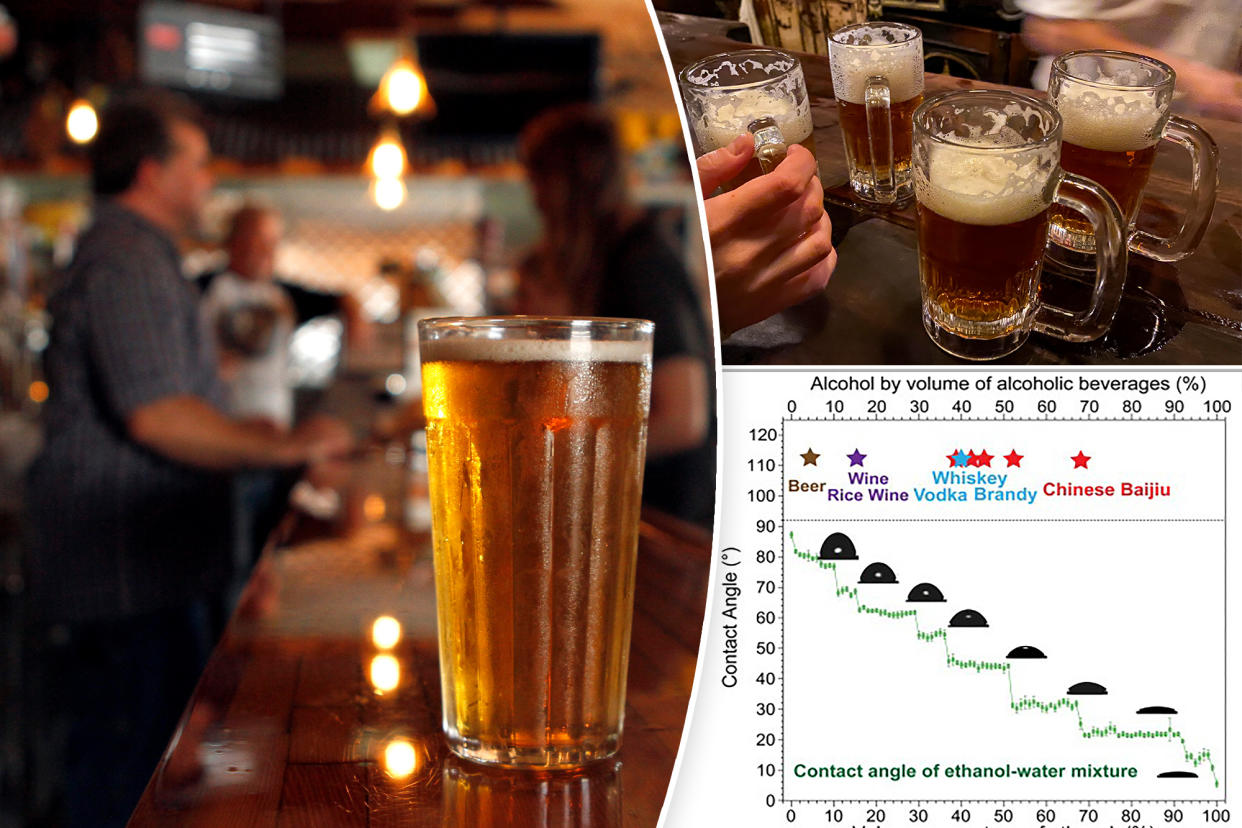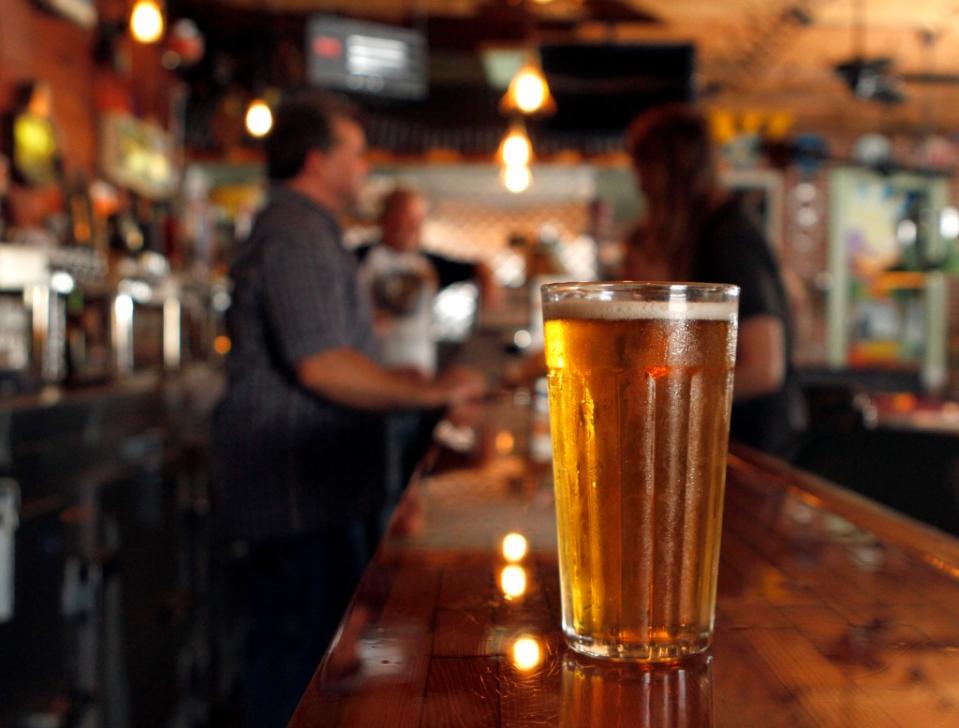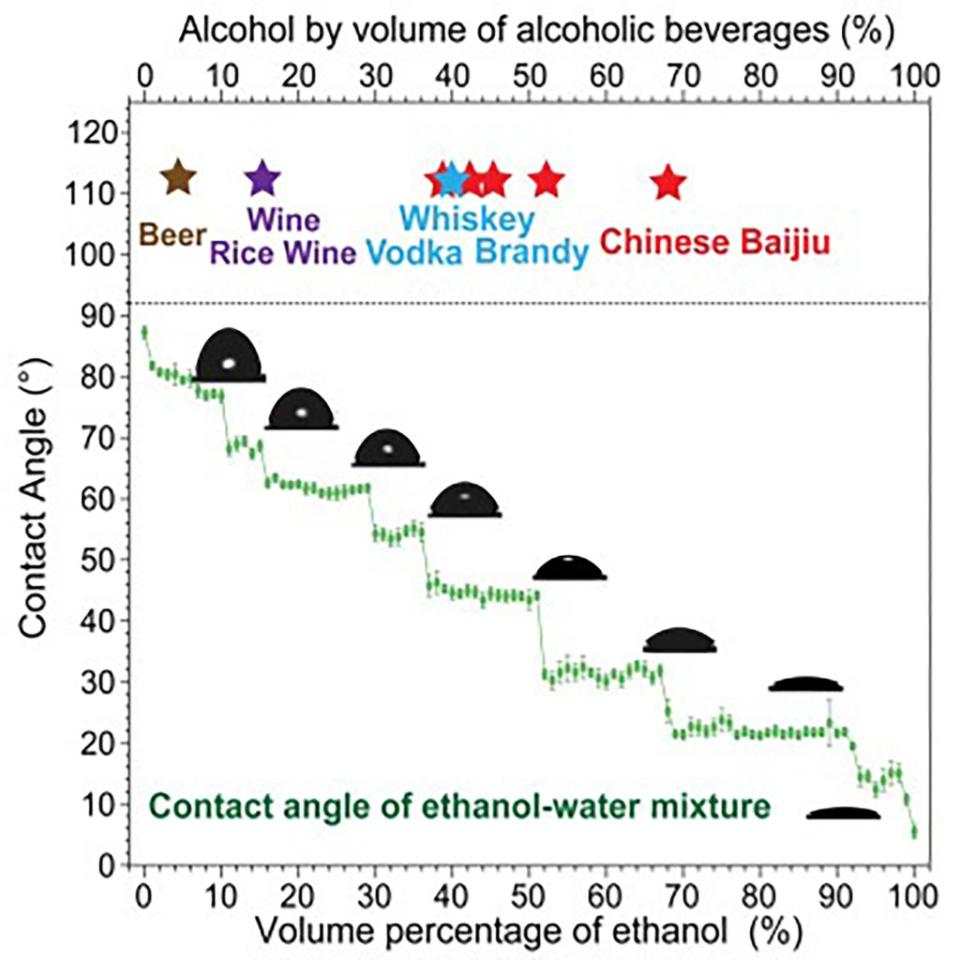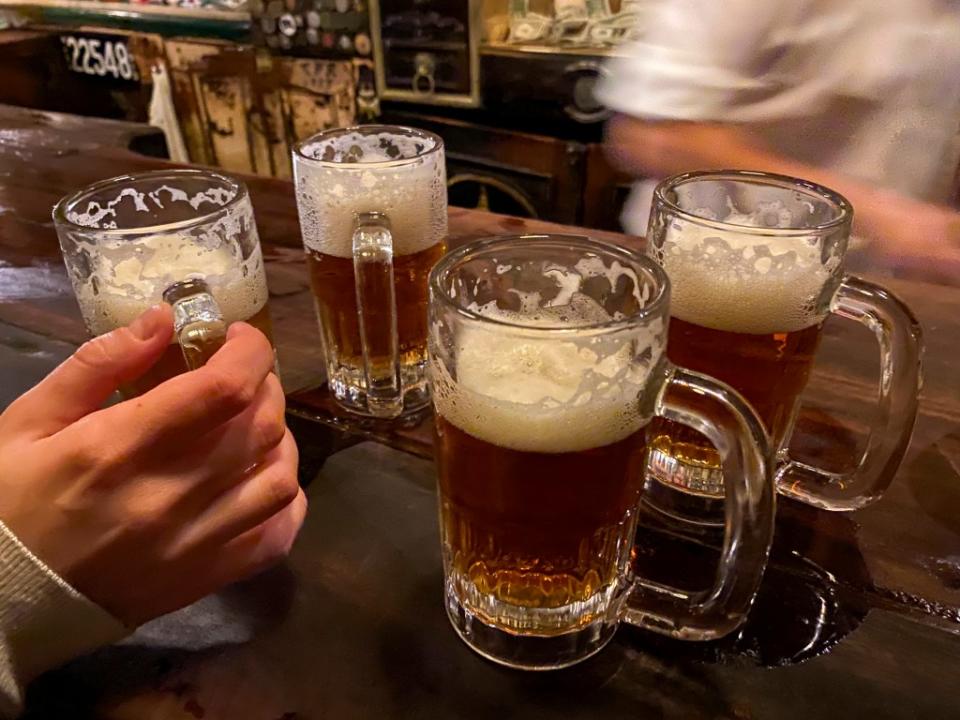Yes, your beer tastes better ice cold — and scientists now know why

Save water, drink beer — ice cold.
A pint of beer actually does taste better when it’s served ice cold in, say, a frozen mug, according to a study recently published in the scientific journal Matter.
Researchers at the Chinese Academy of Sciences discovered that alcoholic beverages taste more or less “ethanol-like” at different temperatures.

The team learned that the temperature of the liquid changes how the water and ethanol (or alcohol) form — creating either chain-like or pyramid-shaped clusters at the molecular level, which in turn impacts how the drink tastes.
At low concentrations, the alcohol forms more pyramid-shaped structures around the water molecules. At higher concentrations, the alcohol begins to arrange itself in a chain.
Specifically, there was a noticeable increase in the chain-like structures in drinks with 5% to 11% alcohol when served at 41°F — like beer.
Typically, light beers have between 4% and 5% alcohol, while regular beers have between 5% and 6%. Meanwhile, craft beers can vary usually containing anywhere from about 6% to 10%.

“At low temperature, the tetrahedral (pyramid-shaped) clusters become the low concentration amount,” lead author and materials scientist Lei Jiang said in a statement.
“This is why we drink cold beer.”
The case for a case of cold beer isn’t the only alcohol etiquette researchers have questioned.
Scientists also tested age-old mantras chanted by fraternity brothers for decades: “Liquor before beer, you’re in the clear” and “Liquor before beer, never fear.”

Unfortunately for those who want to take a shot and then chug a beer, the order of how different alcohols are consumed does not hold off a hangover — in fact, most so-called remedies don’t.
“A single drink of alcohol is enough to trigger a hangover for some people, while others may drink heavily and escape the hangover entirely,” said Sandra Arévalo, a spokesperson for the Academy of Nutrition and Dietetics who was not affiliated with the study.
In general, inebriation experts agree that hangover intensity is determined more by the volume of sauce one drinks and the speed at which it’s consumed.
No matter how good an ice-cold beer tastes, alcohol can cause dehydration, poor sleep, headaches, heart pounding, stomach issues, nausea and vomiting, as well as inflammation in the liver, pancreas, brain, gastrointestinal tract and other organs as the body struggles to flush out the toxins and recover nutrients.
But life is too short to drink warm beer.

 Yahoo News
Yahoo News 
